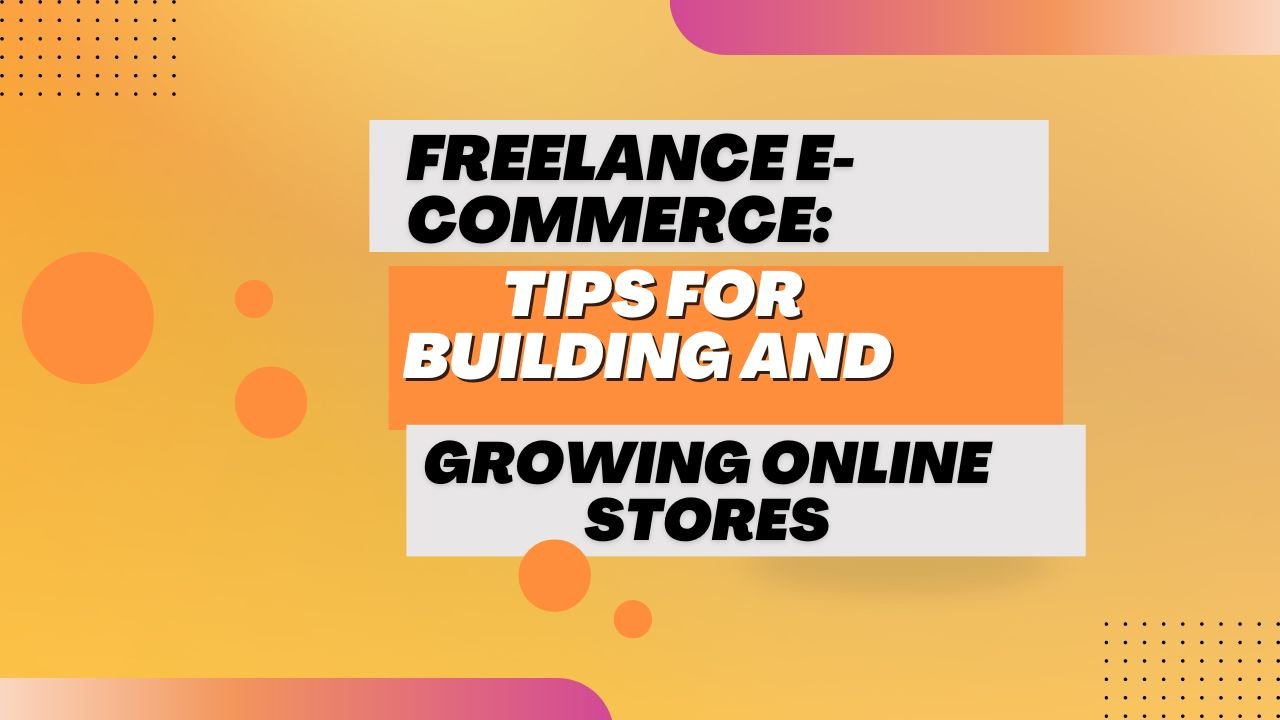Freelance E-commerce: Tips for Building and Growing Online Stores

Freelance e-commerce is a popular and profitable way to work online and provide various e-commerce services to clients. Whether you want to work as a freelance e-commerce developer, a freelance e-commerce marketer, a freelance e-commerce manager, or any other type of e-commerce freelancer, you can find plenty of freelance e-commerce jobs on various online platforms or websites.
However, freelance e-commerce also comes with some challenges and responsibilities. You need to build and grow online stores that attract and convert customers, deal with competition and uncertainty, and maintain your skills and knowledge.
How can you build and grow online stores as a freelance e-commerce? In this article, we will share some tips and techniques that can help you improve your performance and results as a freelance e-commerce.
What Is Freelance E-commerce?
Freelance e-commerce is the process of selling or buying goods or services over the internet by providing e-commerce services on a freelance basis. A freelance e-commerce works with various clients or brands to create and optimize online stores that meet their needs and expectations.
A freelance e-commerce can offer various services, such as:
- Web development: Designing and developing websites or applications that enable online transactions, such as Shopify, WooCommerce, Magento, etc.
- Online marketing: Promoting and advertising online stores using various channels and strategies, such as SEO, SEM, SMM, email marketing, content marketing, etc.
- Inventory management: Managing and organizing the stock and supply of goods or services for online stores, such as dropshipping, fulfillment by Amazon (FBA), etc.
- Customer service: Providing support and assistance to customers who visit or buy from online stores, such as answering queries, resolving issues, processing refunds, etc.
How to Build and Grow Online Stores as a Freelance E-commerce?
Building and growing online stores as a freelance e-commerce requires some tips and techniques that cover every aspect of each project. Here are some of them:
- Understand the client’s needs and expectations. You need to understand the client’s needs and expectations by communicating with them regularly, asking them relevant questions, listening to their feedback, etc. You also need to understand their industry, audience, competitors, goals, etc.
- Choose the right platform and tools. You need to choose the right platform and tools by selecting the best option that suits the client’s budget, requirements, preferences, etc. You also need to use reliable platforms and tools that can help you create and manage online stores, such as Shopify, WooCommerce, Magento, etc.
- Create and optimize the online store. You need to create and optimize the online store by following the best practices for web development and design, such as using responsive design, clear navigation, fast loading speed, secure payment methods, etc. You also need to follow the best practices for online marketing and SEO, such as using keywords, meta tags, backlinks, social media integration, etc.
- Monitor and improve the online store. You need to monitor and improve the online store by using various tools or apps that can help you track and analyze the performance and results of the online store, such as Google Analytics, Google Search Console, Facebook Pixel, etc. You also need to provide feedback, support, and recommendations to the client, and help them implement changes, improvements, or updates.
Conclusion
Freelance e-commerce is a popular way to work online and provide various e-commerce services to clients. It has many advantages that make it an attractive and profitable career option. However, it also has some challenges and risks that make it a complex and demanding career option.
By building and growing online stores as a freelance e-commerce, you can improve your performance and results as a freelance e-commerce.
Upwork Tips and Tricks: How to Make Money on Upwork as a Beginner
